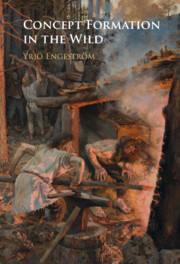Concept Formation in the Wild
Concept formation is predominantly analyzed in classrooms and laboratory experiments, meaning that the collective formation of culturally novel concepts in practical activities “in the wild” has largely been neglected. However, understanding and influencing the complexity and contradictions of the present world demands powerful concepts that can make a difference in practice. Going beyond the understanding of concepts as individually acquired static labels, this book develops a dialectical theory of collective formation of novel concepts in the wild, in everyday activities. Drawing on cultural-historical activity theory (CHAT), concepts are seen as contested and future-oriented means for guiding activities and their transformations. Detailed real-life examples of germ cell concepts show how they can radically influence the course of development in different activities. Helping to identify and foster the formation of potentially powerful concepts in fields of practice, this book is essential reading for researchers, advanced students, and practitioners across human and social sciences. This title is also available as Open Access on Cambridge Core.
Yrjö Engeström is Professor Emeritus of Education at the University of Helsinki and Professor Emeritus of Communication at the University of California San Diego. He is Director of the Center for Research on Activity, Development and Learning (CRADLE) at University of Helsinki and a visiting professor at Rhodes University, South Africa, and University West, Sweden. Engeström applies and develops CHAT and the theory of expansive learning in studies of transformations in education, work, and communities. He is known for the methodology of formative interventions and the Change Laboratory. His recent books include Learning by Expanding (2nd ed., 2015), Studies in Expansive Learning (2016), and Expertise in Transition (2018), all published by Cambridge University Press. Engeström received an honorary doctorate from the University of Oslo in 2005 and from the University of Ioannina, Greece in 2018. In 2021 he received a lifetime achievement award from the Cultural-Historical Research Special Interest Group of the American Educational Research Association.
